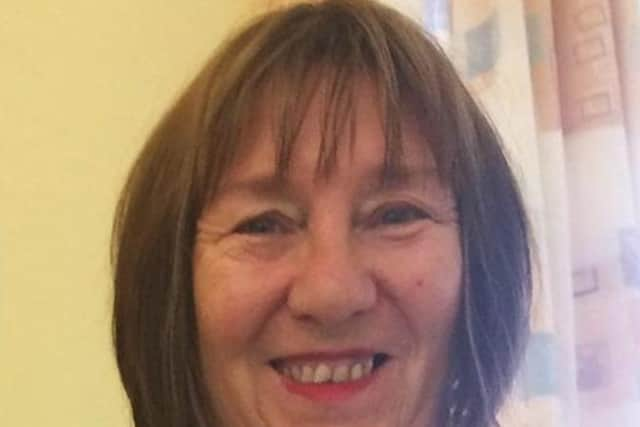Lancashire woman living with dementia welcomes Alzheimer’s Society's new £4.3 million Longitude Prize on Dementia to find technology that helps people to live independently for longer
and live on Freeview channel 276
The Longitude Prize on Dementia is a £4.3 million prize pot funded by Alzheimer’s Society, Innovate UK and Challenge Works.
It is calling for innovators to create breakthrough technologies that learn from a person living with dementia, adapting for their condition as it progresses to help maintain their independence.
Advertisement
Hide AdAdvertisement
Hide AdIn a new survey of people with close family and friends living with dementia in the North, two thirds (66%) say technology would become more important in the future for managing dementia. More than half (54%) surveyed said they would feel less concerned about their relative’s safety if they had technology to help them live independently.


Gina Airey, 63, was diagnosed with vascular dementia five years ago and says technology like electronic key finders helps her manage in the house.
Gina, a retired teacher, said: “I manage most life skills but nothing prepared me for the constant frustration of losing things and failing to recall where small items have been left after going into the garden, shopping or returning home tired.
"It is exhausting looking for items when your recall is poor. To help me with this, I acquired a set of six key finders, which are fantastic.”
Advertisement
Hide AdAdvertisement
Hide AdPeople surveyed in the North revealed that although loved ones benefitted from existing technology, including monitoring devices (22%), GPS tracking devices (14%), and phone reminders (13%), around three in ten (30%) of people said their friends and relatives didn’t use technology at all.
There are 900,000 living with dementia in the UK, around 17,000 are estimated to be living with the condition in Lancashire. A survey by Alzheimer’s Society revealed 85% of people said they would want to stay at home for as long as possible if diagnosed with dementia.
Marion Child, Head of Service for Alzheimer’s Society in the North West, said: “We know that people with dementia want to live independent, fulfilled lives doing the things they love and our research shows that people feel that technology could play a crucial part in helping them live the lives they want.
“Most existing technology for people with dementia is designed to keep them safe, or give their carers peace of mind. But there are huge opportunities to harness cutting-edge technology to help fill in the gaps in their brain and thinking as their condition progresses.
Advertisement
Hide AdAdvertisement
Hide Ad“The results showed that many felt technology, like facial recognition, could help them communicate when their speech declines, but would not be available in their loved ones’ lifetime, however amazingly it already exists in the apps and smart technology we use every day.
"We could repurpose the software of TikTok and WhatsApp to help people put a name to a face or remember a word. The new Longitude Prize on Dementia will open up huge possibilities in this area, making technology work for people living with dementia and their families.”
Entries for the prize close on 26 January 2023.